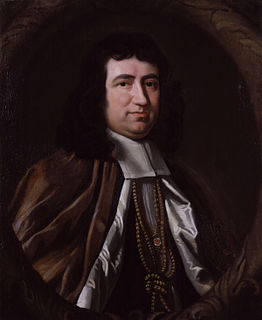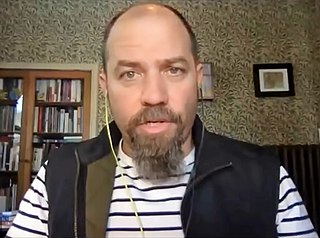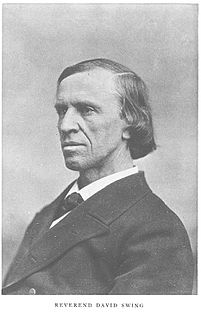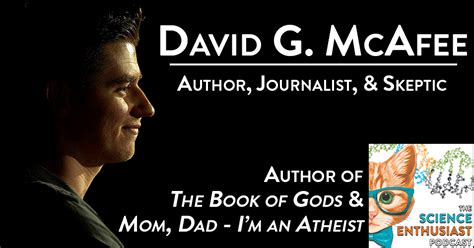A Quote by Salman Rushdie
It is often said by religious people that without its framework, there is no sense of right or wrong. My view is that religion comes after ethics.
Related Quotes
Those of us who believe in God and derive our sense of right and wrong and ethics from God's Word really have no difficulty whatsoever defining where our ethics come from. People who believe in survival of the fittest might have more difficulty deriving where their ethics come from. A lot of evolutionists are very ethical people.
It's when people begin using their religion as just a way of getting power over other people that scares me. I'm afraid that's what's going on in a lot of cases right now. When people deliberately tell lies, Creationism for instance, and pretend, "Oh, it's not really religion." I mean they know they're lying, and yet they're the religious people. There's something wrong there.
An anecdote is related of Sir Anthony Ashley Cooper (1621-1683), who, in speaking of religion, said, "People differ in their discourse and profession about these matters, but men of sense are really but of one religion." To the inquiry of "What religion?" the Earl said, "Men of sense never tell it".
Whenever we feel that we are definitely right, so much so that we refuse to open up to anything or anybody else, right there we are wrong. It becomes wrong view. When suffering arises, where does it arise from? The cause is wrong view, the fruit of that being suffering. If it was right view it wouldn't cause suffering.
The modern Gamaliel should teach ethics. Ethics is the science of human duty. Arithmetic tells man how to count his money; ethics how he should acquire it, whether by honesty or fraud. Geography is a map of the world; ethics is a beautiful map of duty. This ethics is not Christianity, it is not even religion; but it is the sister of religion, because the path of duty is in full harmony, as to quality and direction, with the path of God.
Some people spend their entire lives devoted to a religion that claims to be the ‘right’ religion... they often deny scientific evidence that contradicts their archaic holy books, they sometimes oppress those who disagree with them, and they always do what they do in the name of an unknowable deity... but sometimes, they wake up. Occasionally, they realize that all religions are man-made and that none of them are ‘right.’ And when they do, they can live happy and fulfilling lives without dogma and without anticipating or fearing an afterlife.






































